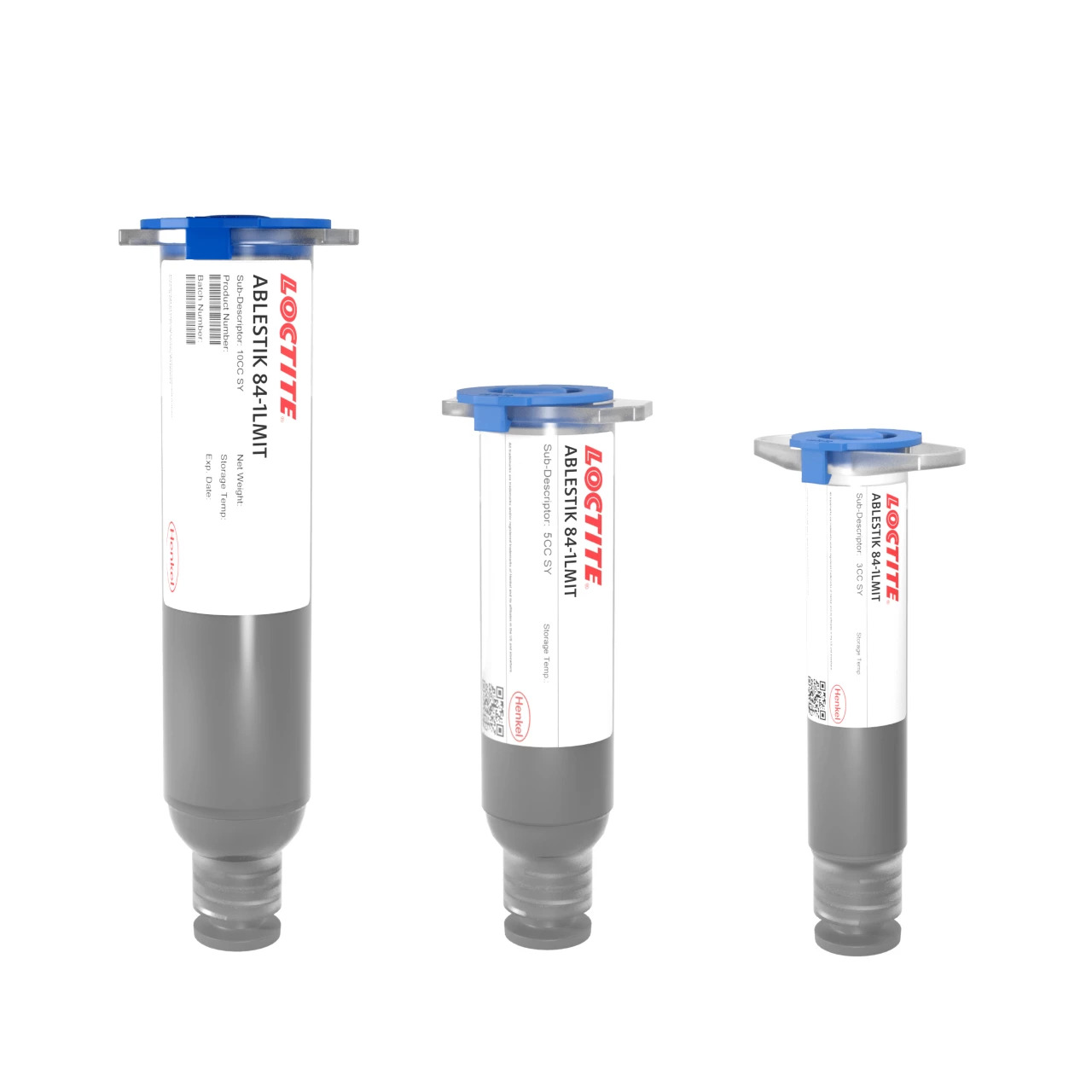LOCTITE ABLESTIK 84-1LMIT
Harmonization Code : 3506.91.90.99 | Prepared glues and other prepared adhesives, not elsewhere specified or included; products suitable for use as glues or adhesives, put up for retail sale as glues or adhesives, not exceeding a net weight of 1 kg ; Adhesives based on polymers of headings 3901 to 3913 or on rubber; Other ; Other
Main features
- Electrically conductive
- High thermal conductivity
- MIL 5011 - NASA
Product Description
LOCTITE ABLESTIK 84-1LMIT epoxy adhesive is designed for medium die attach applications. This adhesive is ideal for application by syringe dispensing or screen printing. The T in the product name stands for Thermal since it has 2 times higher thermal conductivity (± 4W/mK) than the standard LMI version.
LOCTITE ABLESTIK 84-1LMIT meets the military requirements of MIL-STD883C, Method 5011 and also passes NASA outgassing requirements. It is an electrically and thermally conductive, solvent free adhesive with high purity and low outgassing.
Cure Schedule
- 1 hour @ 150°C
Technical Specifications
| Thermal Properties | |
| Thermal Conductivity Thermal Conductivity Thermal conductivity describes the ability of a material to conduct heat. It is required by power packages in order to dissipate heat and maintain stable electrical performance. Thermal conductivity units are [W/(m K)] in the SI system and [Btu/(hr ft °F)] in the Imperial system. | 4.3 W/m.K |
| Weight Loss @ 300°C | 0.19 % |
| Electrical Properties | |
| Volume Resistivity Volume Resistivity Volume resistivity, also called volume resistance, bulk resistance or bulk resistivity is a thickness dependent measurement of the resistivity of a material perpendicular to the plane of the surface. | 7.0x10-5 Ohms⋅cm |



